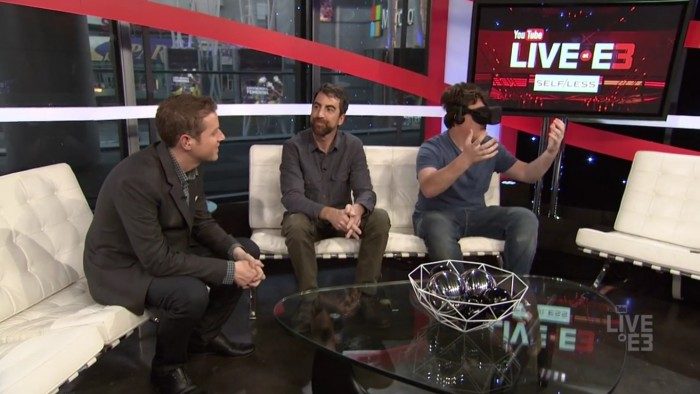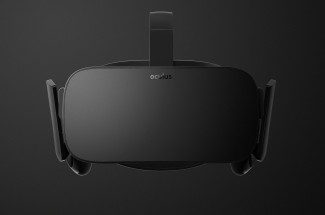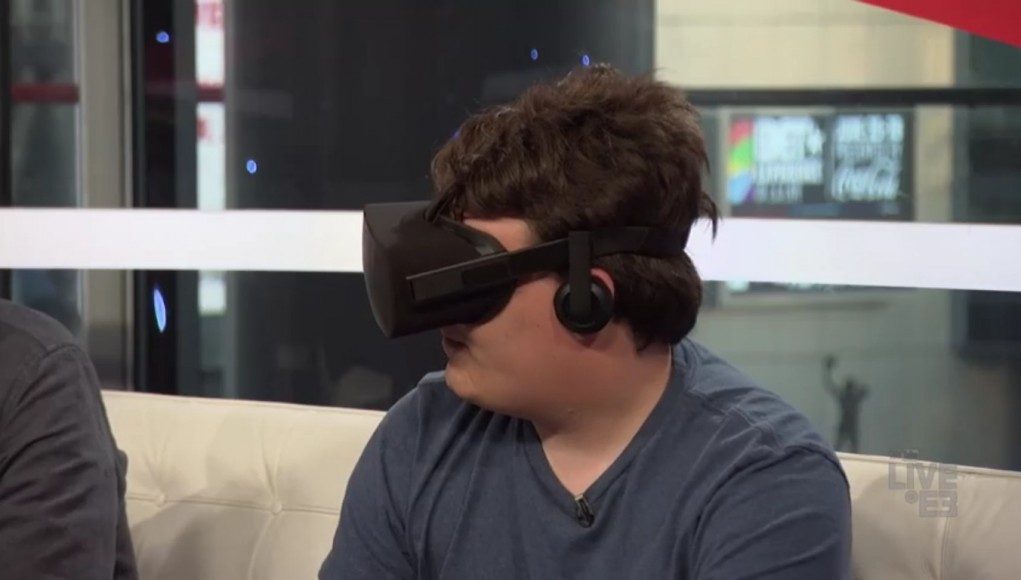During his many rounds of E3 interviews, Founder and inventor of the Oculus Rift Palmer Luckey discussed the present and near future of virtual reality. Here’s a quick recap of our favorite bits:
Luckey, donning an engineering sample of the new Oculus Rift, explained to Gameslice’s Geoff Keighley the differences between the new Rift and the previous DK2 model. Drawing emphasis on the Rift’s 2160×1200 90Hz across dual displays, Luckey continued the interview with the headset in place for nearly 3 minutes while Keighley threw Luckey for a loop and switched sides mid-explanation.

Luckey then addressed the current and future situation of launch titles for the Rift in regards to developer timelines:
“You want there to be titles for launch, but you also want there to be a pipeline… VR is going to be around for plenty of time….The real battle isn’t necessarily in making content, its convincing consumers and gamers that virtual reality is something they have to try.”
“It is the right time to get people excited… the [Oculus and Sony] booths don’t get bigger through vanity, they get bigger through practicality. You have to show people VR to understand it,” Luckey told Jeff Gerstman of Giant Bomb.
Responding to an open question from Max Scoville of IGN about the Rift’s PC requirements, Luckey said that eventually “virtual reality is going to move to a model where the headsets do all the rendering.”

Luckey compares the Rift’s development cycle to smartphones, saying that today’s bargain smartphones can outperform flagship models of the 2008-2009 era. “If you go 5 years into the future, you won’t be able to buy a headset at [the quality of the current Oculus Rift] for more than $100,” Luckey told Scoville.
Considering Apple’s iPhone 3G and HTC’s T-Mobile G1 were the big names in smartphones just 7 years ago—both sporting 480×320 screens and single core processors—VR has an exciting 5 years ahead of it.
Road to VR is currently at E3 in Los Angeles, bringing breaking news, interviews, and product previews of all your favorite VR stuff.







